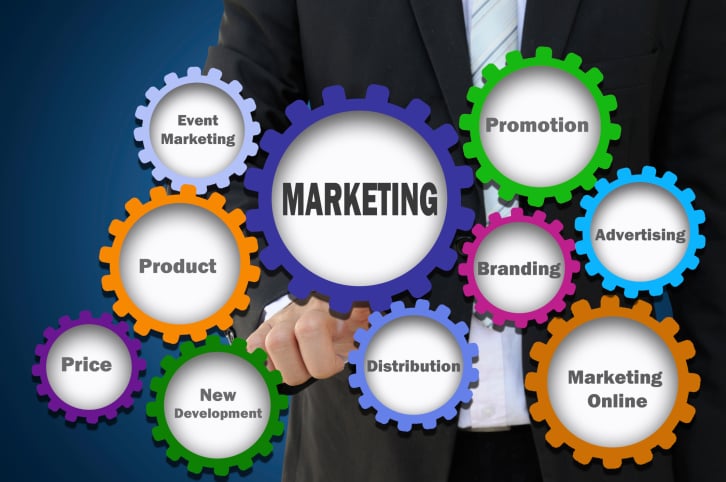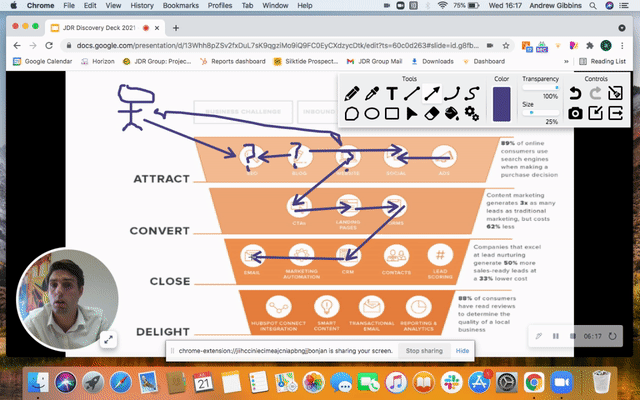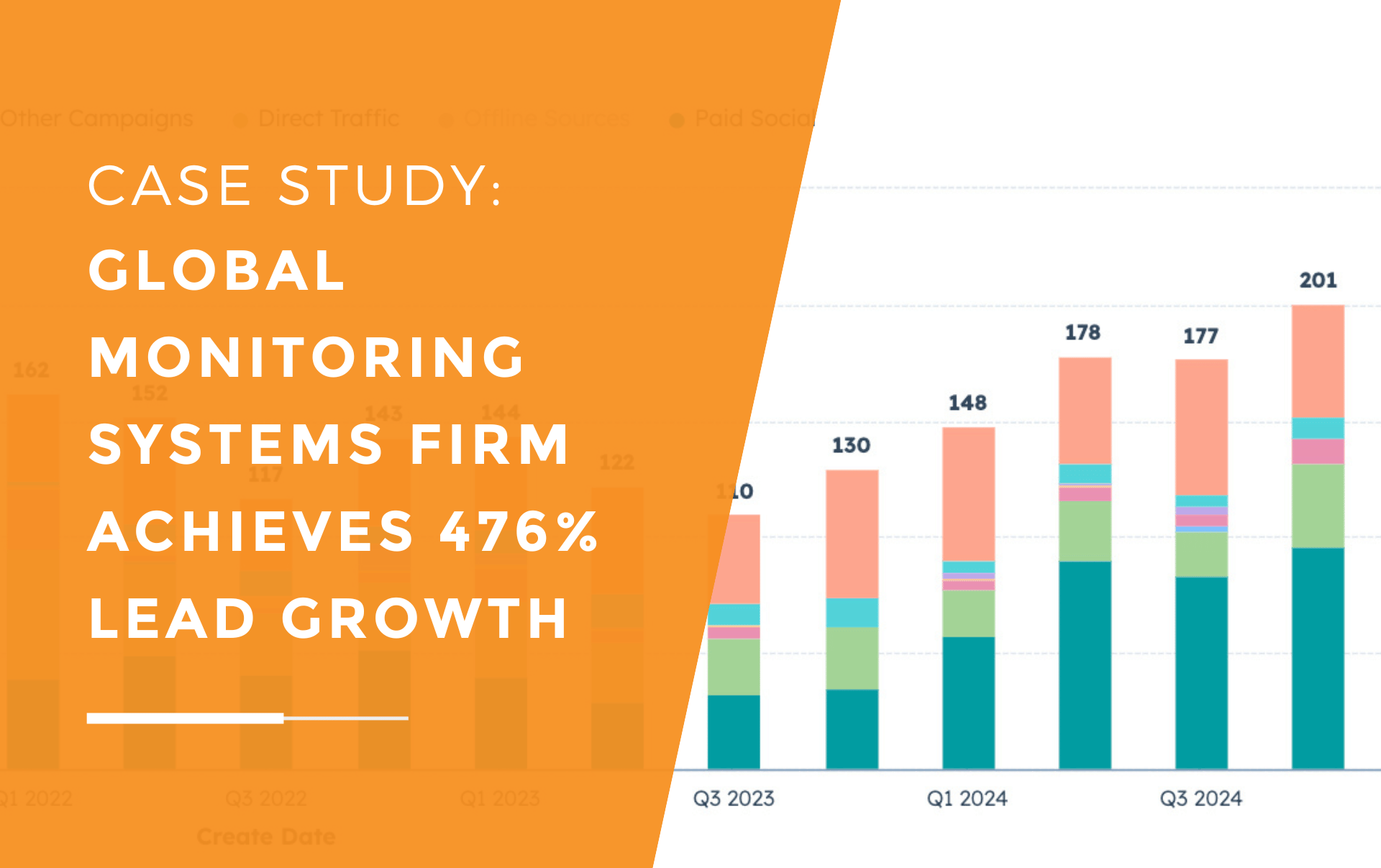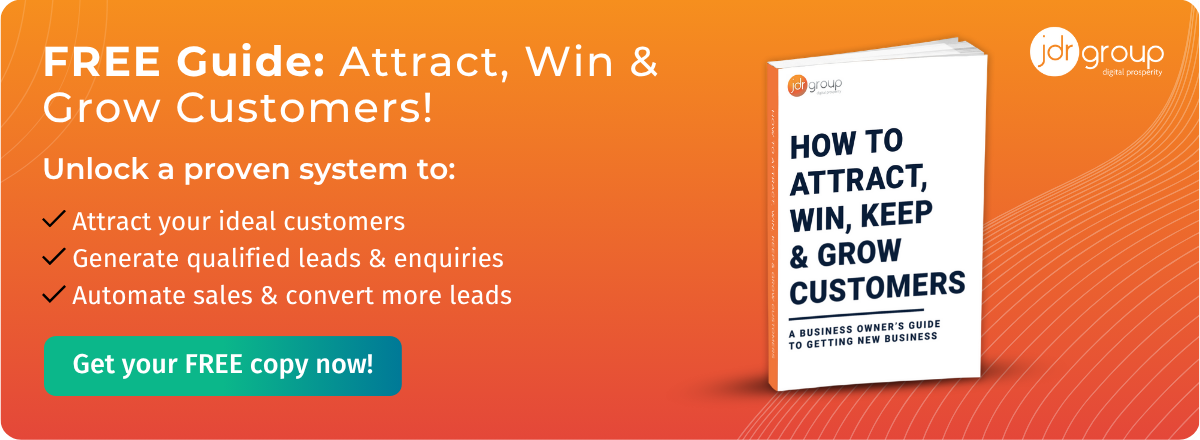Get More Leads, Enquiries & Sales: 5 Core Principles Of Inbound Marketing
by Leanne Mordue on 01-Jul-2020 13:49:00

It doesn’t matter where you are or which sector you work in, Inbound Marketing is incredibly important for generating leads, enquiries and sales for your business. It involves your website “getting found” using videos, e-newsletter, blogs, social media, SEO and other kinds of content marketing, which combine to promote your business message online.
But why has it become so important? The reason is down to increasing market competitiveness, more advanced search engines and changes in Google’s algorithms.
A brief background to Inbound Marketing:
More and more people are shopping online, posting online reviews and using smartphones on a daily basis. Here are some very insightful stats:
▪ In 2020, over 3.6 billion people were using social media worldwide, a number projected to increase to almost 4.41 billion in 2025. - Statista
▪ 75% of smartphone users expect to get immediate information while using their smartphone. - Google, 2019
▪ 79% of smartphone users have made a purchase online using their mobile device in the last 6 months - OuterBox, 2020
This number is only set to get higher and doesn’t account for the activity of laptops, PCs and tablets – it’s no wonder that doing business is becoming so competitive! This is where Inbound Marketing comes in to dramatically improve exposure of your products and services on any Internet device.
Take search engine algorithm rules as an example, particularly Google’s. They place websites and adverts higher in the search rankings if they have unique, fresh, relevant and useful content such as:
▪ Keyword optimised website copy (SEO)
▪ Regularly updated e-newsletters, blogs, whitepapers
▪ Regular interaction with well-targeted audiences on social networking sites
▪ Testimonials, links to your product/service reviews and useful authority websites
All of these are examples of inbound marketing. Using any or all of them will increase website exposure to the right Internet users, meaning you get more website traffic that results in qualified leads, enquiries and sales.
To find out more about how to attract more enquiries and sales to your website using some of these inbound marketing techniques, read this article: Which Digital Marketing Tactics Should I Be Using To Attract More Customers?
Inbound Marketing: The 5 Core Principles
If you want to maximise the effects of inbound marketing on your business’ performance, there are 5 main principles to consider.
1. Interruption vs. Permission
These variations of marketing are very different; interruption is usually favoured by large companies with big budgets who can afford to place their ads “above the noise” of daily advertising on traditional media. From advertising on the side or buses to billboards, interruption marketing catches people’s attention in their daily lives and can be more subliminal.
Permission marketing is the generation of leads using e-newsletters and e-marketing, where people opt-in for personalised, relevant marketing promotions. It places power in the hands of the consumer and makes them a lot more likely to enquire and buy. This is the smart choice in today’s customer value focused market.
2. Buying Behaviour Has Changed
As I outlined before, the introduction of smartphones, tablets, online communities and reviews has transformed the buying behaviour of consumers around the world. It’s much easier to compare product/service providers, prices, offers and share experiences all over the Internet. Therefore, businesses are striving to offer better customer service and value than their competitors in the form of guarantees, information, special offers and consultations. This is what inbound marketing caters for; satisfying the needs of modern consumers to generate sales.
3. Owned vs. Rented
The ‘owned’ principle relates to email marketing, an important part of inbound marketing. Email lists are a brilliant way of communicating directly to a specific audience, whilst being low cost and easy to monitor and track. Also, owning a list of email address of leads that you have accumulated from opt-ins on your website, is incredibly valuable for increasing sales. You know these people are already interested in what you have to offer, allowing you to develop an ongoing relationship which often leads to them buying.
Rented marketing involves placing ads on platforms like Google, Yahoo and Facebook, and paying them to promote your message. You will be shown to a wider audience range on more websites, but won’t have guaranteed qualified leads and data to build on straight away.
4. Bucket vs. Pipeline
Pipeline marketing has proven to be a very effective strategy for small businesses and sales executives who want to generate more qualified leads, enquiries and sales. As another form of inbound marketing, the pipeline is a series of around 6 stages of action, from grabbing attention to making a sale. As the probability of a sale increases down the pipeline, you can measure the potential value of a customer as you use SEO, social media posts, free downloads and other inbound marketing techniques. This pipeline can be adapted to win new customers or retain old ones.
The leaky bucket marketing theory is the opposite, where you use unmeasured, direct selling to get new business. This means your customers will have lower value and will be continuously lost as new ones are added, greatly reducing ROI (return on investment).
5. Broadcast vs. Conversation
These two strategies are largely used on social media nowadays. Broadcasting involves posting news, interesting stories and links that you think people will find valuable. This is a very traditional approach to marketing that many businesses still rely on, but customer behaviour has moved on.
On the likes of Twitter, Facebook, LinkedIn and your website, you can use the inbound strategy of conversation marketing to gain a deeper understanding of your most relevant and valuable potential customers. Start a related conversation topic, post a competition, ask for opinions on your products/services; anything that gives you marketing insights. Once someone establishes a relationship with a company/brand, they are very likely to buy from you again and again.
As you can tell, inbound marketing is a flexible and far-reaching method of boosting your leads, enquiries and sales process. Apply it to any Internet marketing channel or platform and you will notice huge differences in conversion rates, giving you competitive advantage in a changing business world. Contact us today and let us help you Get More Leads, Enquiries & Sales!
- Inbound Marketing (SEO, PPC, Social Media, Video) (829)
- Strategy (368)
- Sales & CRM (195)
- Marketing Automation & Email Marketing (191)
- Business Growth (167)
- Website Design (161)
- Hubspot (138)
- Lead Generation (117)
- Google Adwords (99)
- Content Marketing (94)
- Conversion (53)
- Case Studies (47)
- News (47)
- Ecommerce (39)
- Webinars (35)
- SEO (26)
- AI (20)
- Events (19)
- LinkedIn Advertising (17)
- Video (17)
- Video Selling (15)
- Software training (13)
- Niche business marketing (11)
- The Digital Prosperity Podcast (10)
- Facebook Advertising (6)
- HubSpot Case Studies (5)
- January 2026 (7)
- December 2025 (15)
- November 2025 (6)
- October 2025 (17)
- September 2025 (16)
- August 2025 (14)
- July 2025 (14)
- June 2025 (5)
- May 2025 (19)
- April 2025 (15)
- March 2025 (13)
- February 2025 (13)
- January 2025 (8)
- December 2024 (2)
- November 2024 (4)
- October 2024 (21)
- September 2024 (4)
- August 2024 (8)
- July 2024 (14)
- June 2024 (16)
- May 2024 (25)
- April 2024 (15)
- March 2024 (18)
- February 2024 (5)
- January 2024 (10)
- December 2023 (6)
- November 2023 (10)
- October 2023 (13)
- September 2023 (12)
- August 2023 (14)
- July 2023 (13)
- June 2023 (14)
- May 2023 (15)
- April 2023 (13)
- March 2023 (14)
- February 2023 (13)
- January 2023 (15)
- December 2022 (13)
- November 2022 (6)
- October 2022 (8)
- September 2022 (22)
- August 2022 (15)
- July 2022 (13)
- June 2022 (16)
- May 2022 (14)
- April 2022 (16)
- March 2022 (17)
- February 2022 (11)
- January 2022 (8)
- December 2021 (6)
- November 2021 (7)
- October 2021 (11)
- September 2021 (10)
- August 2021 (7)
- July 2021 (7)
- June 2021 (4)
- May 2021 (4)
- April 2021 (1)
- March 2021 (3)
- February 2021 (5)
- January 2021 (4)
- December 2020 (7)
- November 2020 (6)
- October 2020 (5)
- September 2020 (9)
- August 2020 (18)
- July 2020 (17)
- June 2020 (17)
- May 2020 (10)
- April 2020 (21)
- March 2020 (24)
- February 2020 (21)
- January 2020 (12)
- December 2019 (23)
- November 2019 (12)
- October 2019 (14)
- September 2019 (16)
- August 2019 (15)
- July 2019 (13)
- June 2019 (6)
- May 2019 (8)
- April 2019 (4)
- March 2019 (2)
- February 2019 (2)
- January 2019 (2)
- December 2018 (3)
- November 2018 (24)
- September 2018 (11)
- August 2018 (9)
- June 2018 (3)
- May 2018 (6)
- April 2018 (14)
- March 2018 (12)
- February 2018 (16)
- January 2018 (15)
- December 2017 (15)
- November 2017 (18)
- October 2017 (23)
- September 2017 (19)
- August 2017 (28)
- July 2017 (27)
- June 2017 (25)
- May 2017 (18)
- April 2017 (17)
- March 2017 (16)
- February 2017 (17)
- January 2017 (14)
- December 2016 (21)
- November 2016 (27)
- October 2016 (25)
- September 2016 (16)
- August 2016 (20)
- July 2016 (19)
- June 2016 (14)
- May 2016 (20)
- April 2016 (24)
- March 2016 (22)
- February 2016 (28)
- January 2016 (27)
- December 2015 (28)
- November 2015 (19)
- October 2015 (9)
- September 2015 (12)
- August 2015 (5)
- July 2015 (1)
- June 2015 (10)
- May 2015 (3)
- April 2015 (11)
- March 2015 (14)
- February 2015 (15)
- January 2015 (12)
- December 2014 (2)
- November 2014 (23)
- October 2014 (2)
- September 2014 (2)
- August 2014 (2)
- July 2014 (2)
- June 2014 (7)
- May 2014 (14)
- April 2014 (14)
- March 2014 (7)
- February 2014 (2)
- January 2014 (7)
- December 2013 (9)
- November 2013 (14)
- October 2013 (17)
- September 2013 (3)
- August 2013 (6)
- July 2013 (8)
- June 2013 (4)
- May 2013 (3)
- April 2013 (6)
- March 2013 (6)
- February 2013 (7)
- January 2013 (5)
- December 2012 (3)
- November 2012 (2)
- September 2012 (1)
Subscribe by email
You May Also Like
These Related Blogs

Inbound Marketing Can Help Traditional Outbound Marketing Techniques To Increase Lead Generation
Many marketers see inbound marketing vs. outbound marketing as a cut and dry choice they need to make for their business. Belief is that you have to c …

Inbound Marketing Webinar: Boost Traffic, Leads, and Sales with JDR Group

476% More Leads for Global Monitoring Systems Manufacturer
This client is a global manufacturer of monitoring systems for turbines and rotating equipment, with 3 offices around the world. They design and produ …




